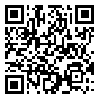Volume 8, Issue 1 (Spring 2020 2020)
JRIA 2020, 8(1): 63-81 |
Back to browse issues page
Download citation:
BibTeX | RIS | EndNote | Medlars | ProCite | Reference Manager | RefWorks
Send citation to:



BibTeX | RIS | EndNote | Medlars | ProCite | Reference Manager | RefWorks
Send citation to:
Shokouhibidhendi M, Motahar R. (2020). Evaluation of Human Dignity (Based on the Views of Sayyid Musa al-Sadr) in Urban Renovation Policies; Case of Study: Economic Strategy for Renovation in Tehran Comprehensive Plan. JRIA. 8(1), 63-81.
URL: http://jria.iust.ac.ir/article-1-1269-en.html
URL: http://jria.iust.ac.ir/article-1-1269-en.html
1- Iran University of Science and Technology)
2- IUST
2- IUST
Abstract: (4907 Views)
Urban renovation is a strategic issue in Iran urban development, and it is considered in many urban documents. The deteriorated areas of cities may cause to a variety of social and economic problems for their inhabitants. Living in such areas, may deprive residents from opportunities (such as access to educational space, access to health services, and sense of belonging to a good neighborhood), and so, distort their human dignity. For this reason, urban planners should try to define goals and strategies for renovating urban deteriorated areas. In Tehran, the comprehensive plan (approved in 2007) has identified strategies for the renovation of urban deteriorated areas. In terms of economics, the comprehensive plan of Tehran proposes a "No Cost" renovation strategy which means the renovation process should be realized with the municipal incomes from inside of deteriorated areas (without other incomes of municipality which are gained from rich areas of the city). Is such a strategy based on human dignity? This is the question of this research. In other words, is it consistent with the concept of human dignity to provide the budget required to support renovation in deteriorated areas through the taxes of from the place of renovation?
Since human dignity is a relatively complex concept, and there may not be a complete consensus on the definition and criteria for its measurements, this paper focuses on the views of one of the major thinkers in this area. Sayyid Musa al-Sadr can be a good reference for defining the concept of human dignity, because he has books, speeches and even certain social attempts to address the concept of human dignity. According to the humanitarian and Islamic context of his ideas, this paper, by explaining the views of Sayyid Musa al-Sadr, has tried to present a theoretical framework for measuring human dignity in urban development programs. Then, based on this framework, this article evaluates the economic strategy of Tehran's renovation. In order to evaluate the urban renewal strategy in Tehran's comprehensive plan, this research has conducted a semi-structured interview with two groups of experts: First, the experts of the Tehran Center for Urban Studies and Planning (as the conductor of Tehran Comprehensive Plan), and the second, the experts of the Tehran Renovation Organization (as the responsible organization for urban renewal). The interviews proceeded to a theoretical saturation (a total of 15 interviews).
Research findings show that human dignity can be measured by seven criteria: "maintaining and promoting unity in society", "creating opportunities for progress for all human beings", "considering people equal, except for superiority in piety, endeavor and science", "dealing with people's affairs", "responsiveness of all people to each other", "the responsibility of all citizens towards each other ","human freedoms" and "institutionalizing the empowerment of the disadvantaged". According to these criteria, this paper shows that the economic strategy of "No Cost Urban Renewal", which has been emphasized by the comprehensive plan of Tehran, cannot be based on human dignity.
Since human dignity is a relatively complex concept, and there may not be a complete consensus on the definition and criteria for its measurements, this paper focuses on the views of one of the major thinkers in this area. Sayyid Musa al-Sadr can be a good reference for defining the concept of human dignity, because he has books, speeches and even certain social attempts to address the concept of human dignity. According to the humanitarian and Islamic context of his ideas, this paper, by explaining the views of Sayyid Musa al-Sadr, has tried to present a theoretical framework for measuring human dignity in urban development programs. Then, based on this framework, this article evaluates the economic strategy of Tehran's renovation. In order to evaluate the urban renewal strategy in Tehran's comprehensive plan, this research has conducted a semi-structured interview with two groups of experts: First, the experts of the Tehran Center for Urban Studies and Planning (as the conductor of Tehran Comprehensive Plan), and the second, the experts of the Tehran Renovation Organization (as the responsible organization for urban renewal). The interviews proceeded to a theoretical saturation (a total of 15 interviews).
Research findings show that human dignity can be measured by seven criteria: "maintaining and promoting unity in society", "creating opportunities for progress for all human beings", "considering people equal, except for superiority in piety, endeavor and science", "dealing with people's affairs", "responsiveness of all people to each other", "the responsibility of all citizens towards each other ","human freedoms" and "institutionalizing the empowerment of the disadvantaged". According to these criteria, this paper shows that the economic strategy of "No Cost Urban Renewal", which has been emphasized by the comprehensive plan of Tehran, cannot be based on human dignity.
Type of Study: Research |
Subject:
Subject- oriented researches in Islamic architecture and urbanism, eg. Spatial-geometrical ideas, symbols and ornaments
Received: 2020/05/31 | Accepted: 2020/05/31 | Published: 2020/05/31
Received: 2020/05/31 | Accepted: 2020/05/31 | Published: 2020/05/31
Send email to the article author
| Rights and permissions | |
 |
This work is licensed under a Creative Commons Attribution-NonCommercial 4.0 International License. |





